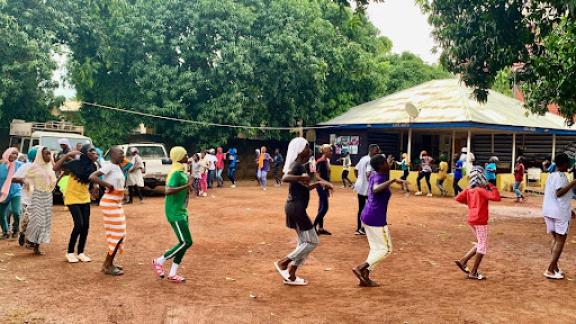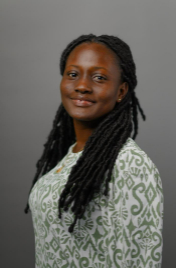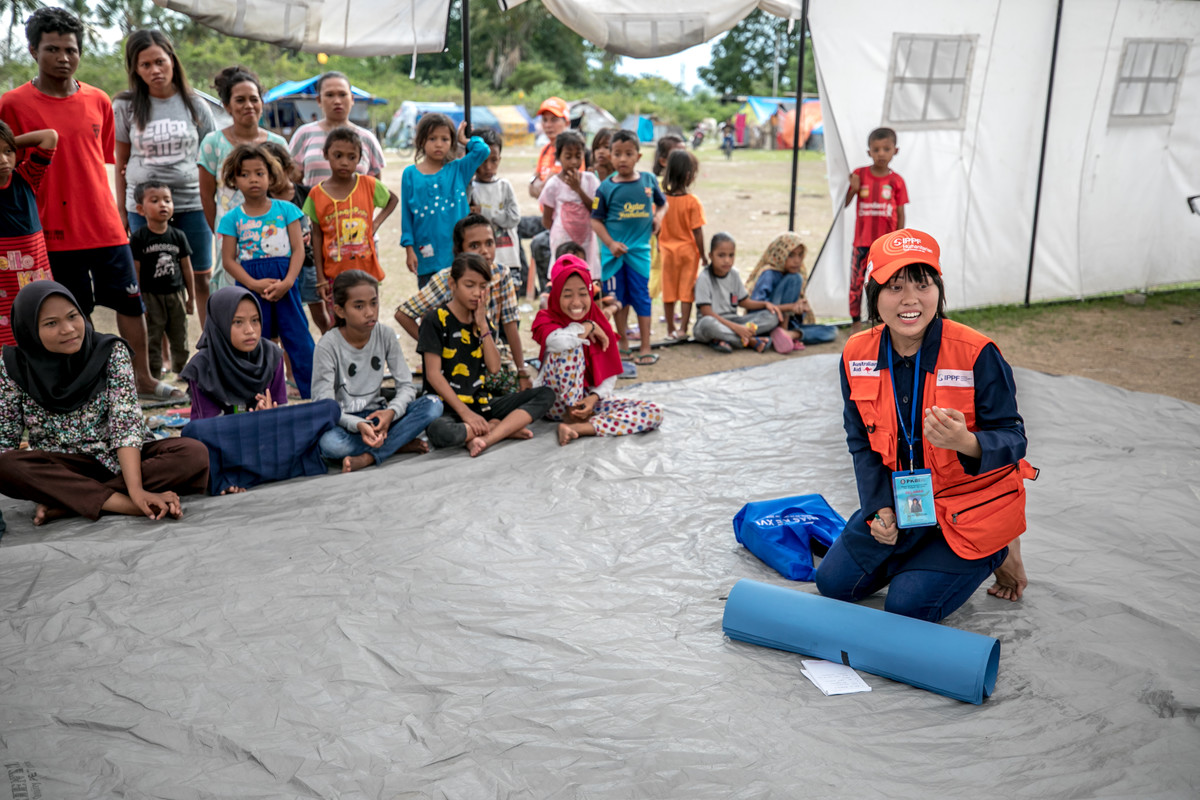In Ghana, we live in communities where some sexual and reproductive health issues are not openly discussed. These issues are stigmatized. I grew up in a neighborhood where teenage pregnancy is prevalent. I did not know much about sexual and reproductive health and rights. However, when I went to the university, I was introduced to the Youth Action Movement (YAM). By joining this movement, I learnt more about myself and everything a young person should know about their sexual and reproductive health.
A few years later, the Planned Parenthood Association of Ghana advertised for a Youth Action Movement coordinator. I applied and got hired. To be eligible, I must have been volunteering with YAM for at least 2 years and be under the age of 25. Once an individual is beyond the age limit of the movement, another young person needs to come on board. One main essence of this position is to build the capacity of young people and absorb them into the workforce. This rule is key to understanding the role of the YAM Coordinator in our organization. In fact, to coordinate a youth group, you should be a young person. Who knows better what young people need than young people themselves?
As a Youth Coordinator, I work to build youth capacity, strengthen meaningful youth participation and provide a platform for young people to enhance their skill set. I am very proud to work for Planned Parenthood Association of Ghana. We are a big organization advancing the SRHR rights of young, marginalized and vulnerable people. . Currently, YAM has over 15 branches and over 700 volunteers. Our Member Association was set up in 1967 to initially provide family planning services to the people of Ghana however, with time, the association provides more SRHR services than just Family Planning (FP) services to all . Our mission is to provide comprehensive sexual and reproductive health and rights (SRHR) information and services to all people in Ghana, especially the young and vulnerable, in order to improve their quality of life.
when
country
Ghana
region
Africa
Subject
Young People
Related Member Association
Planned Parenthood Association of Ghana

Who knows better what young people need than young people themselves?

Meaningful Youth Participation is one of PPAG's thematic areas
Young people are at the heart of our work. We implement a youth-centered approach in all our programmes and activities. This is important for three main reasons. First, in Ghana today, we have many young people across the country. We cannot address issues that affect young people without them. The same goes for the work of IPPF worldwide. We need the input of the people we serve and work with - to voice their opinions and share their thoughts. At IPPF, young people are involved in all decision-making processes. This is what we define as meaningful youth participation.
Second, we need creativity. The world is changing. There is a lot of progress. There are many new technologies. Young people are in touch with these changes. They are living it. Therefore, we need them to bring on board new ideas that are in line with these changes and use the new technologies. In this way, IPPF Member Associations will continue to innovate and stay connected to this changing and evolving reality in which young people live. MAs continue to modernize and be attractive for young people to join.
Finally, we need young people in IPPF because of the peer-to-peer approach. Young people feel more comfortable with their peers. In our centers, we see that young people find it easier to talk about sexual health issues with their peers. It is easier for them to open up and have meaningful conversations. Especially because of the stigma that we have in this particular sector - sexual and reproductive health and rights services. And we actually see that by bringing young people on board and training them to be peer educators, the stigma is reduced in the communities because of the youth leadership.

Media (radio) youth engagement
PPAGImplementing activities by and for young people
At Planned Parenthood Association of Ghana, we have developed programmes by and for young people. I am particularly proud of the “Youth fight against SGBV Project' ': it is an advocacy project towards government resourcing the domestic Violence survivors’ support fund. It can be difficult to get funding for advocacy projects like this because we don't see the results immediately. But advocacy, by definition, takes time.
The Youth Action Movement (YAM), uses innovative methods to reach out to young people. In Tamale, we use entertainment to educate young people. Every Saturday we organize sports activities in the communities. At the end of the activity, we always have an educational talk on reproductive health and rights. This is done in short sessions to encourage people to stay and participate. It is a winning package: sport and education.
In and out of school sessions on SRHR are also held often. We are currently working with the Amaze team on adapting videos to use in the Ghanaian context. Videos are a great tool: students are more willing to have conversations after watching videos. They want to see something more creative and relatable.
Meanwhile, we invested in online platforms to provide SRHR education for all. We set up a model using whatsapp and it's called RHESY - Reproductive Health Education and Services for Young people. Through this group, young people can participate in sessions led by peer educators who are trained in SRHR. We organize small sessions of about 15 people per language. This has been very successful.
I would like to emphasize an important point: empowering young people also means giving them professional opportunities. At PPAG, we give young volunteers the opportunity to work as interns in our organization during their holidays. We also have the Youth Support Programme for YAM members to support project officers. It is a platform to build capacity in project design and implementation. Most of our young volunteers are still in school and want to grow as future young professionals.

In-school outreach led by peers
PPAGAnticipating and overcoming barriers
When we develop programmes for young people, we take time to identify and overcome potential barriers. Language was one of them: Ghana is a multilingual country. So we make sure that we employ polyglot social workers. Our digital contact center has more than five languages representatives. This allows us to reach more young people, and our colleagues are able to interact more when young people call.
Another barrier that we have identified is the timetable of our centers. In some areas, it was observed that young people didn't want to go to our centers during the week because they could meet adults in the centers. So we have opened some of our clinics on Saturdays so that they can come to us in a more discreet way. This is a good example of why it is important to get young people on board: they will help to identify the barriers to access for their peers and will come up with ideas on how to overcome them.
My message is clear: the youth-centered approach is essential to the success of our work.











